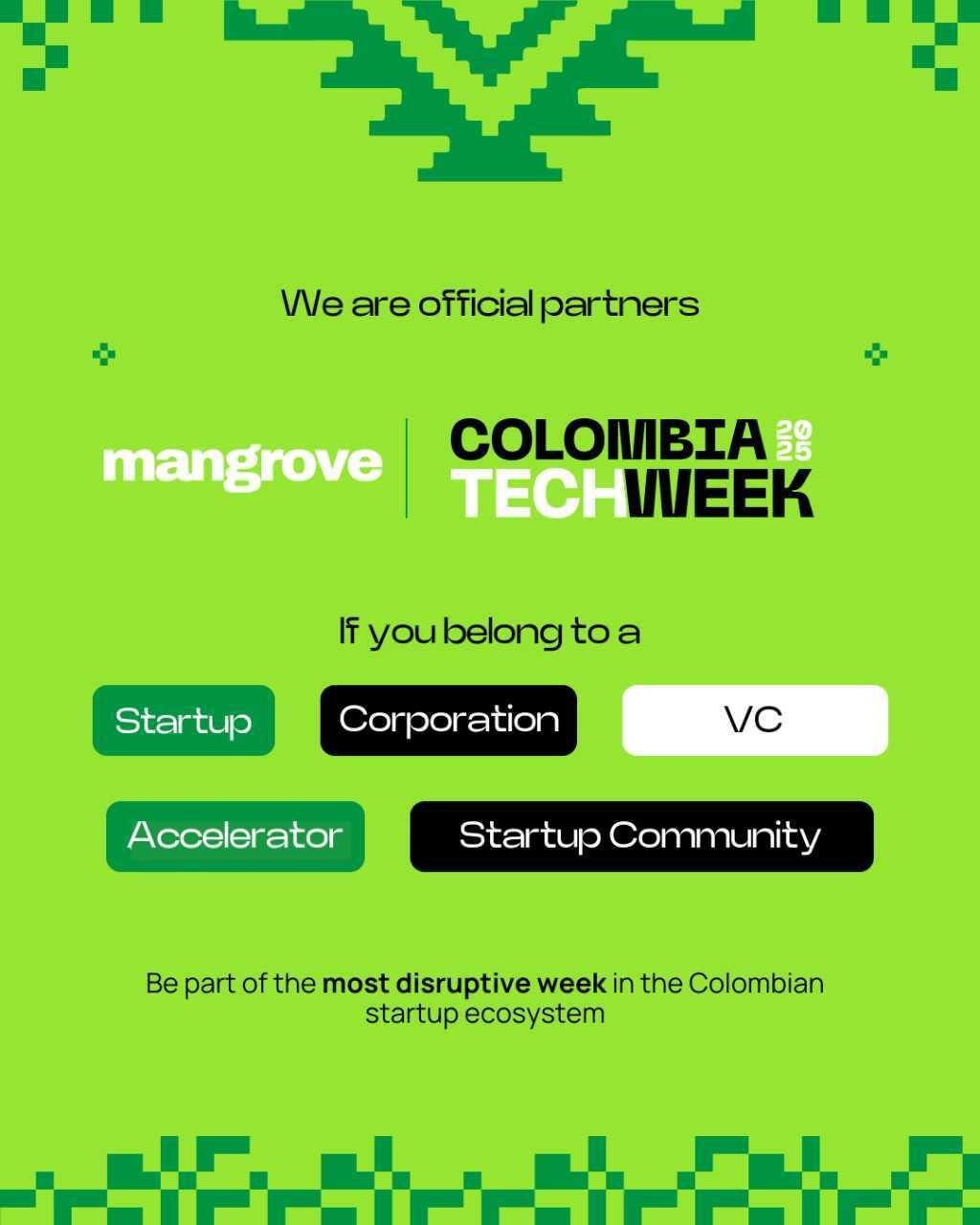Issue 030: The Mangrove Newsletter
News & Expert Views, Reports, Insights, Thoughts, and Perspectives on Global Resilience and Business Continuity.
Welcome to Issue 030 of the Mangrove Newsletter! We hope you enjoy reading this as much as we enjoyed putting it together for you.
1. Resilience Case Study
At Mangrove Technology, we're constantly pushing the boundaries of what it means to build a truly resilient business. While our focus often centres on operational excellence by ensuring your core functions withstand disruption, we're seeing an increasingly critical dimension emerge that often goes unaddressed until it's too late, strategic regulatory resilience. For any investor or entrepreneur eyeing global expansion, navigating the intricate and ever evolving mess of international legislation is no longer a peripheral concern; it's central to sustainable growth.
The reason we're bringing this to your attention now is because we consistently observe a common blind spot among founders, investors, and senior stakeholders in fast scaling startups. There's a tendency to focus intensely on the immediate compliance requirement at hand, assuming that all regulatory demands are fundamentally the same, or that tackling them piecemeal is the most efficient path.
Consider a recent conversation that perfectly encapsulates this challenge. A founder, deeply immersed in scaling their innovative platform, expressed hesitation about integrating a more holistic resilience framework. They voiced concerns about the time and effort required to map their current technical stack and operational approach onto a new structure, particularly when already performing what they saw as similar functions for ongoing ISO27001 and SOC2 compliance initiatives.
While we couldn't support this particular business with our pilot program, as our focus is on early stage scaling, this conversation immediately reminded us of a fundamental flaw we've consistently observed. It quickly underscored why tackling this challenge of building a cohesive, future-proof regulatory strategy was our bread and butter during our advisory days. This perspective, while understandable in the chaotic stages of growth, highlights the very unseen iceberg we aim to help you avoid. It's the belief that satisfying one regulatory framework with a dedicated solution is sufficient, or that collecting similar data in different systems is anything less than a significant, long-term liability.
Building Compliance in Silos
We've observed a common and dangerous pitfall among rapidly scaling companies. This is a tendency to treat compliance as a series of isolated, reactive tasks. They might implement one system for ISO27001, another for SOC2, and a separate process for internal risk management. While each individual effort is well intentioned, the cumulative effect is often a fragmented, inefficient, and ultimately unsustainable compliance ecosystem.
This fragmented approach is a silent killer of growth, leading to one of two detrimental outcomes for scaling businesses:
Like the founder we mentioned, many fail to see the long-term strategic benefit of thinking about resilience holistically. They're focused on building quickly and view new, comprehensive frameworks as duplicative effort. "I'm already doing this for ISO, and that for SOC2," they might think, "so why would I repeat similar functions elsewhere?" This mindset, while seemingly efficient in the short term, ensures compliance efforts remain siloed, preventing any true cross-functional insight or future proofing.
Alternatively, some founders acknowledge the growing complexity but are perpetually battling immediate fires. They can only focus on the urgent compliance tasks of right now, pushing holistic integration to someday. Three years down the line, this someday never arrived. Instead, they find themselves saddled with an exorbitant overhead, requiring huge, dedicated teams to manage a sprawl of disconnected compliance programs. This isn't just anecdotal. it's a rapidly growing global trend. Recent industry reports indicate that nearly three-quarters (72%) of senior leaders and C-suite executives plan to grow their compliance teams this year, a clear sign of escalating headcount. Furthermore, analyses suggest that companies, on average, are dedicating between 2% and 6% of their operating budgets to compliance functions, with some highly regulated sectors spending significantly more. The once lean and agile startup have inadvertently transformed into a clunky business, struggling to maintain the illusion of being scrappy while grappling with immense, self-inflicted complexity and allocation of resources.
In both scenarios, critical information becomes trapped in disparate systems, preventing a holistic view of their risk posture or compliance status. This leads to duplicated efforts, where teams collect similar data multiple times using different methods and naming conventions, resulting in wasted resources and unnecessary complexity. Ultimately, this costly fragmentation directly impacts the bottom line and acts as a significant barrier to efficient scaling. As we've seen, this often means businesses are simply collecting data, rather than making it truly actionable and interoperable across your entire business.
The EU Cyber Resilience Act is a Global Wake-Up Call
The European Union's new Cyber Resilience Act (CRA) perfectly illustrates why a reactive approach to regulation is obsolete. The CRA is not just another piece of legislation; it's a profound shift in how manufacturers of connected products are held accountable for cybersecurity, and its implications extend far beyond EU borders.
Consider the urgent landscape that necessitated the CRA:
89% of IoT-enabled organizations faced cyberattacks last year. This highlights the relentless and escalating threat to operational integrity and customer trust.
69% report a rise in attacks over the past 3 years. The threat landscape is evolving rapidly, demanding continuous and proactive vigilance.
A staggering 98% experienced certificate outages in the last 12 months. Even seemingly minor technical glitches can have significant compliance and operational impacts, underscoring the CRA's emphasis on foundational security.
The CRA focuses on three core pillars that demand a fundamental rethink of product development and ongoing management:
Security by design: This mandates that essential cybersecurity features are built into products from their very conception, not merely patched on as an afterthought. For any business developing connected hardware or software, this requires integrating robust security processes at every stage of the product lifecycle.
Vulnerability management: The Act enforces clear, compliant processes for identifying, reporting, and patching vulnerabilities. This directly addresses issues like the high rate of certificate outages, requiring robust systems for prompt and transparent remediation.
Incident reporting: Manufacturers are now legally obliged to notify authorities of significant security incidents. This elevates the need for robust internal incident response capabilities and transparent communication protocols.
The critical takeaway for investors and entrepreneurs is if your product or service is sold within the EU, or if any part of your supply chain touches the EU market, the CRA will apply to you. Penalties for non-compliance can be substantial, reaching up to €15 million or 2.5% of your total worldwide annual revenue. Something that can cripple a scaling startup. More importantly, the CRA sets a new global benchmark. Compliance with this level of standards will increasingly become a de facto requirement for market access and building trust, influencing expectations across industries and geographies.
Being Proactive is how we Future-Proof Growth
The reactive, whack-a-mole, building the plane whilst flying, Frankensteining approach to regulatory compliance is an old school approach and needs to be left in the past. To truly scale and build resilient startup or company, the focus needs to be on adopting a proactive, strategic mindset. This means moving beyond fragmented compliance programs to a unified regulatory strategy that actively enables, rather than hinders, growth.
Here's how we advise forward thinking investors and entrepreneurs to identify, benchmark, and build for future regulatory demands:
The 24-month regulatory horizon scan: Don't just look at where you are; foresee where you're going. For any intended market expansion, conduct comprehensive research into existing and, crucially, anticipated legislative changes. This includes evolving data privacy laws, emerging AI governance, supply chain transparency, continuity and resilience, consumer duty and industry-specific certifications. Develop a clear, multi jurisdictional roadmap of your upcoming regulatory requirements. Yawn, for sure, but it is the essence of working smarter not harder.
Benchmark for universality: Many regulations, despite their distinct language, share foundational principles… by identifying these common denominators, businesses can decide on universal business terms (guys we don’t need to use the regulatory terms verbatim…), design core operational processes and technological infrastructure that satisfy multiple regulatory requirements simultaneously. This eliminates the need to build bespoke, siloed programs for every new rule.
Integrated resilience frameworks: The key here is interoperability. This might sound like a fancy new word, but it effectively means your different systems and data can "talk" to each other seamlessly. Instead of information being stuck in separate silos, it flows freely between departments and tools, making everything work smarter, not harder. This approach unlocks cross-functional insights and drastically reduces duplicated efforts, transforming raw data into actionable intelligence.
Embrace predictive intelligence: Leverage data analytics and even AI tools to anticipate regulatory trends and shifts before they become mandates. Stay engaged with industry bodies, legal experts, and governmental whitepapers to stay ahead of the curve. Being early allows for strategic integration, which is always more efficient than costly, disruptive pivots. Yes, we know your pivot was actually a short-sighted f*ck up, and not a new strategic direction!
The future of business resilience isn't merely about withstanding shocks. We do feel like a bit of a broken record at this point. It is about transparency, i.e. I know all my operational components. Being able to use these insights to predict and building a strategic advantage. Regardless of this being for market access, product efficiency, service delivery, regulatory climate, etc. Prioritising a holistic strategy, investors can safeguard their investments from unforeseen compliance pitfalls, and entrepreneurs can unlock their true global scaling potential with foresight and confidence.
2. What We're Working On
🥳 We’ve launched the Investor Pilot Program! 🥳
African Innovation Den
Africa Innovation Den is Africa’s first Angel Crowdfunding show built on the belief that Africans can fund one another through curated programs such as the DEN. This final will act as a launch platform for the handpicked early-stage African startups solving real-world problems in sectors such as AI, healthcare, agritech, sustainability, and education and others.
These startups then have the opportunity to pitch to a gathering of multiple Angels
participating both physically and virtually for the opportunity to raise their Angel Capital through a crowd-fund system thereby cutting through bureaucracies involved in startups funding. Make sure you don’t miss your opportunity to get involved!
Vamos Colombia
Mangrove is an official partner of Colombia Tech Week 2025.
We back deep infrastructure, zero-fluff technology, and founders building with long-term focus.
This August, Bogotá and Medellín will host the people designing the future of finance and tech in Latin America.
If you’re building, join us 🚀
3. Work with Us
Global business, SMB, or a Startup? We understand that technology is essential for modern businesses, and we've built replicable processes for businesses that guarantee long-term scalability and sustainability.
Let’s work with you to build better and scale faster. Schedule a Demo with us here. We can’t wait to connect.







